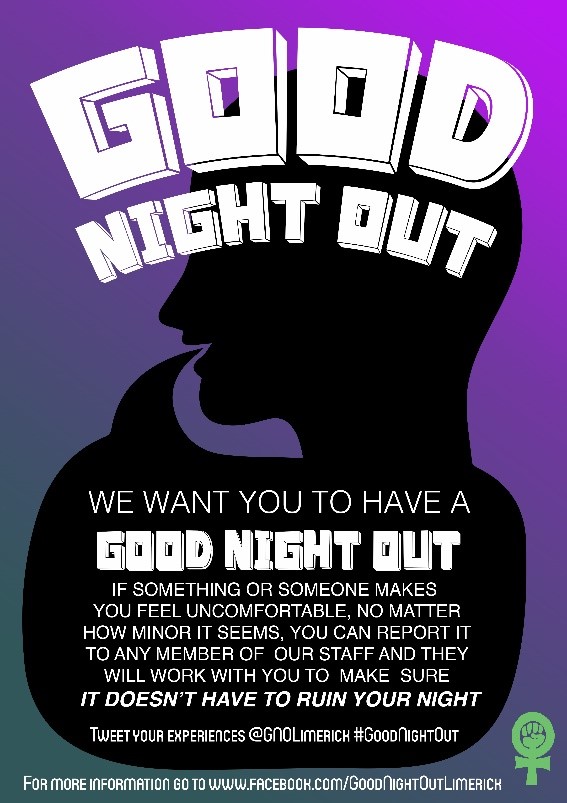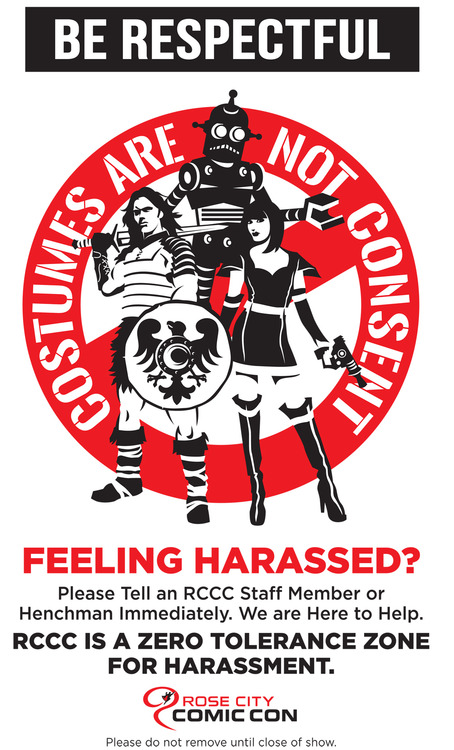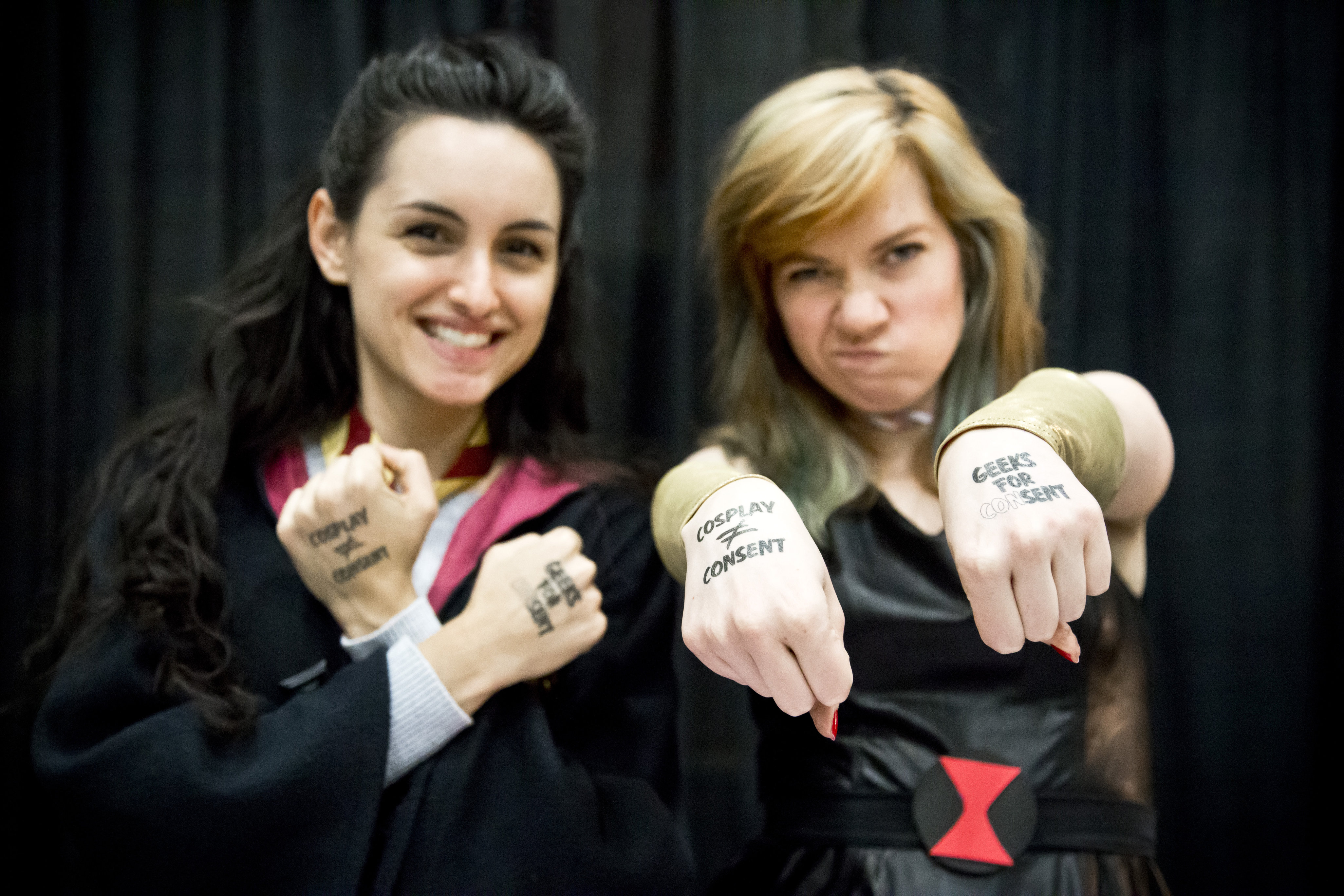Katie Bowers, NY, USA, SSH Blog Correspondent
Last week we discussed New York Comic Con’s shiny, new anti-harassment policy. Over Saturday and Sunday at the convention, I got to see the policy in action.
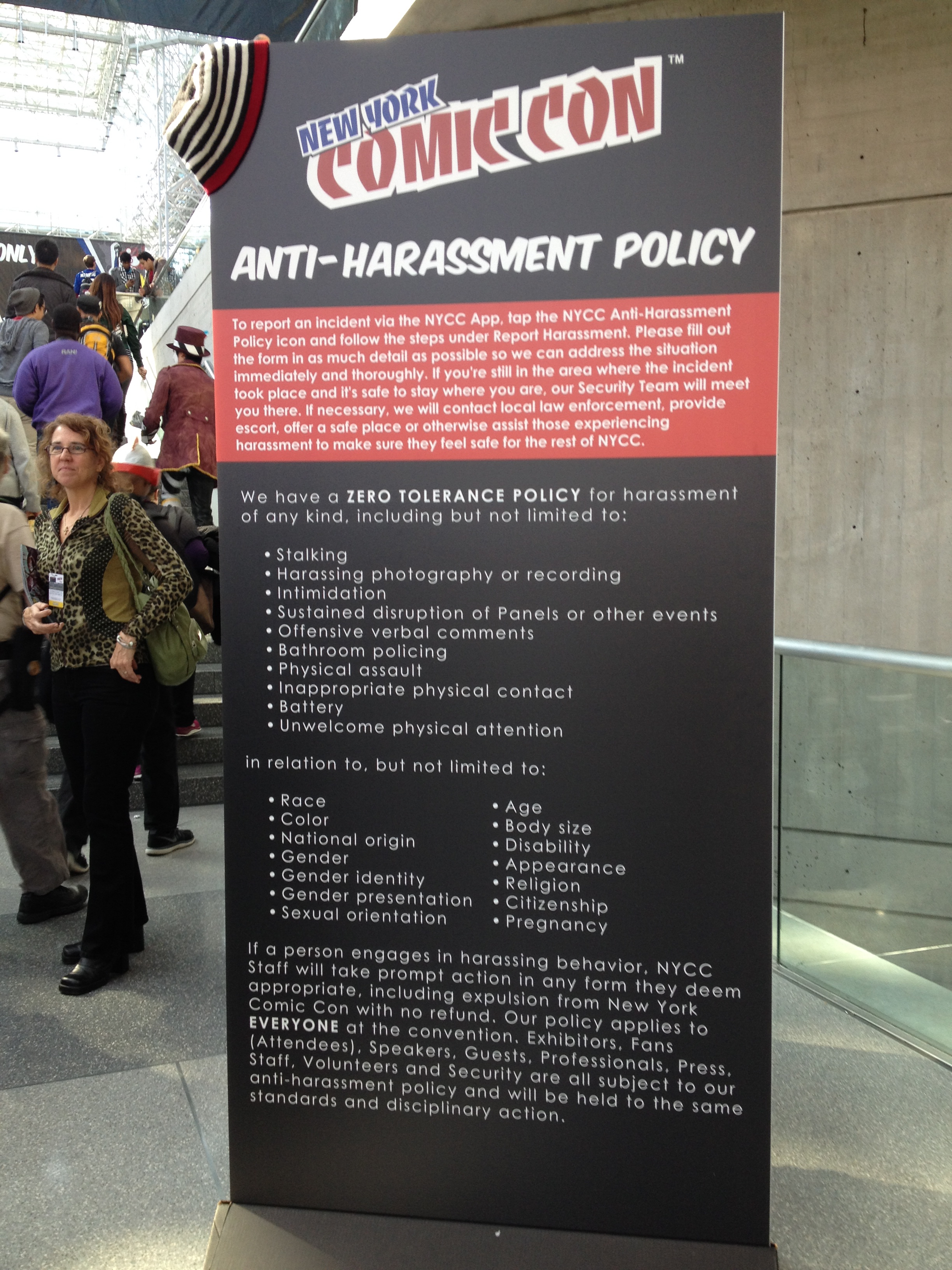 Thanks to the efforts of Geeks for CONsent, The Mary Sue, and others, New York Comic Con 2014 featured a plethora of reminders that “Cosplay is not Consent”. Prominent black and red standees stood throughout the Javits Center’s main lobby – a major site for amateur and professional photographers looking to grab a shot of attendee’s incredible costumes. The policy, which also covered a full page of the program booklet, forbids a wide range of harassment including unwanted physical touching and gestures, verbal comments, stalking and intimidation, and photos taken without consent. Offenders, the standees and program booklets proclaimed, run the risk of being kicked out of the convention.
Thanks to the efforts of Geeks for CONsent, The Mary Sue, and others, New York Comic Con 2014 featured a plethora of reminders that “Cosplay is not Consent”. Prominent black and red standees stood throughout the Javits Center’s main lobby – a major site for amateur and professional photographers looking to grab a shot of attendee’s incredible costumes. The policy, which also covered a full page of the program booklet, forbids a wide range of harassment including unwanted physical touching and gestures, verbal comments, stalking and intimidation, and photos taken without consent. Offenders, the standees and program booklets proclaimed, run the risk of being kicked out of the convention.
I spent the weekend dressed up as one of sci fi’s favorite red heads: Special Agent Dana Scully. To my knowledge, everyone who took my picture asked for my permission – and everyone asked with enthusiasm. This isn’t a new phenomenon. In general, anyone excited enough about your costume to want a picture also wants to share their excitement – but one interaction in particular stuck out to me.
A man approached me on the show floor and asked to take my photo. “Sure,” I said and went to set down my stuff. My badge and bag got tangled and it took a minute to unhook the two. “Sorry, hold on,” I told him.
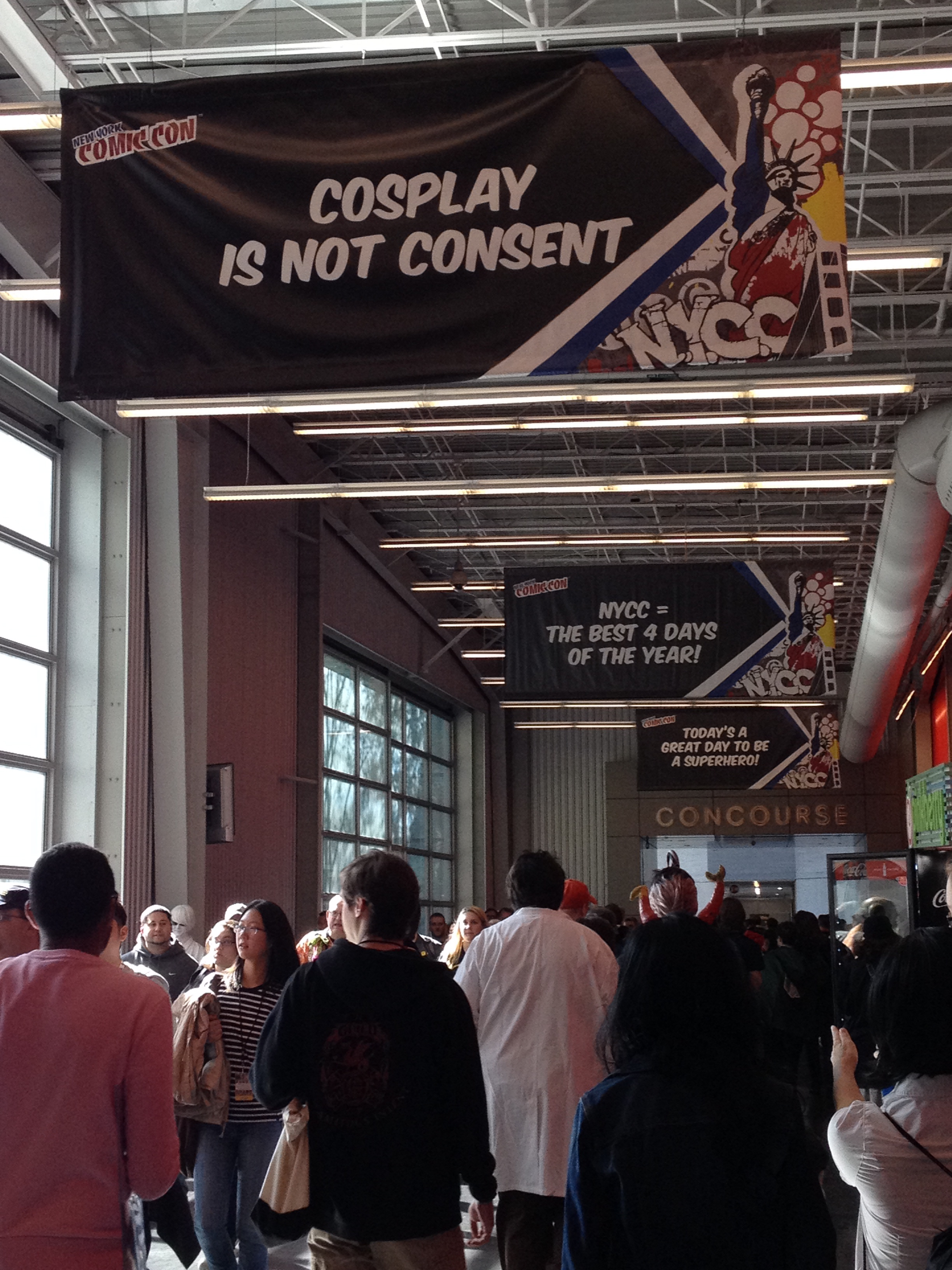 “No, no, I’m sorry,” he said quickly. “I don’t want to make you uncomfortable. You don’t need to be sorry.”
“No, no, I’m sorry,” he said quickly. “I don’t want to make you uncomfortable. You don’t need to be sorry.”
In a place where people walk around on stilts and stilettos, strap proton packs to their back, and squeeze through overcrowded aisle ways, comfort is generally not the first thing on anyone’s mind. His response was totally surprising and wonderfully welcome.
In addition to visual reminders, NYCC also hosted “#YesAllGeeks”, a panel about harassment in convention spaces with Diana Pho of Beyond Victoriana, , Marlene Bonnelly of comics.tumblr.com, writer and prolific tweeter Mikki Kendall; Emily Asher Perrin of Tor, writer and #YesAllWomen creator Kaye M, and Robert Anders, a nurse practioner speaking about the psychological effects of harassment. The panelists did a great job of breaking down why having anti-harassment policies are so important:
* Obviously, a strong policy helps victims to recognize harassment when it happens to them and provides them with an immediate course of action. It can also help women, people of color and members of other frequently harassed groups feel more welcome – an important consideration as conventions grow larger and more diverse.
* With a well-publicized policy, harassers can be held accountable. It’s hard to convincingly claim ignorance when standing next to an 8-foot tall standee and holding the full text of the anti-harassment policy in your swag bag.
* Policies can also open up opportunities for bystanders. Often, bystanders witness harassing behavior but don’t step in. They’re not sure what to do, and they don’t want to be harassed themselves. With a policy in place, bystanders have more options. They can ask the victim if they are okay, if they’d like help, if they’d like to report, and even if they have heard about the “Report Harassment” feature of the NYCC app. Or, if it feels safe, they can remind the harasser about the “Cosplay is not consent” policy.
So there are lots of good reasons to create and publicize strong anti-harassment policies – but Mikki Kendall pointed out that the most important reason of all isn’t action and reaction. It’s prevention. When asked how we can make fan communities safe spaces, Kendall advised that we need to be communities that respond appropriately and immediately to unacceptable behavior. When we speak out against harassment and oppression – at conventions, online, or even in the media that we geek out about – we make our communities better and safer. We hold ourselves and other members of the community to a higher level. Or, since we’re at Comic Con, you could say we “level up”.
This weekend, NYCC became the most highly attended convention of the year with 150,000 fans walking through the front door. Those 150,000 fans saw costumes, sneak previews, art, comics, panels – and a new message: it’s time to level up.
Want to see the panel in its entirety? Visit Beyond Victoriana! Or read more at The Mary Sue.
Katie is a social worker and community educator interested in ending gender-based violence, working with youth to make the world a better place, and using pop culture as a tool for social change. Check out her writing at the Imagine Better Blog and geek out with her on Twitter, @CornishPixie9.


